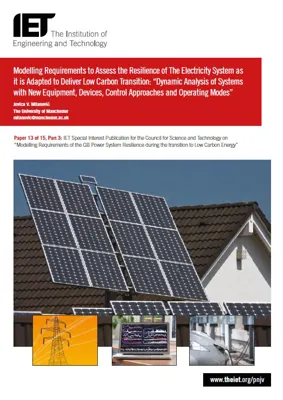Modelling Requirements to Assess the Resilience of The Electricity System as it is Adapted to Deliver Low Carbon Transition

From humble beginnings in the 1880’s the electric power industry has grown into one of the largest industries. It has done an excellent job of meeting the energy needs of the 20th century and electricity has become a basic necessity in modern society. It has also been recognised that the electric power industry has an adverse impact on natural environment and that there is a need to refocus business in order to meet energy needs of society in a way that is “sustainable” in the long run.
The Industry has been undergoing major restructuring over last twenty, twenty five years including shift from monopolistic to competitive structure, following new economic/social/environmental requirements and accommodating new sources/types of electricity generators.
In spite of all these changes the major characteristics of the power systems remain to be:
- Large, conventional power plants dominate;
- Monopolistic vertically integrated structure (mostly);
- Limited (<10%) cross-border power transfers;
- Limited application of FACTS devices and power electronics (PE) in general;
- Limited use and integration of ICT (Information and Communication Technology);
- Preventive control design/actions;
- Deterministic system studies;
- Unidirectional power flow;
- Passive distribution networks;
- Small or no involvement of customers in network operation and control;
- Limited exchange of data between neighbouring utilities.
There has been a substantial amount of work over the last few years in the general area of modelling and dynamics studies of future power networks.
